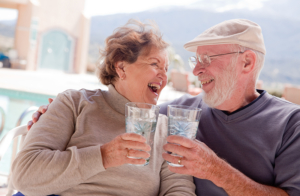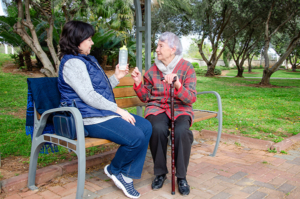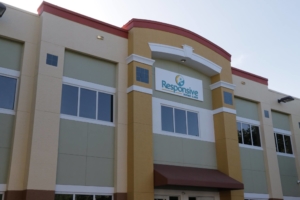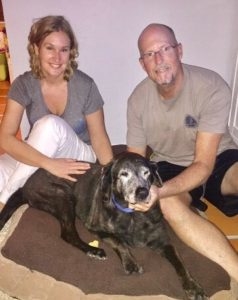Lower Blood Pressure with One Small Change to Your Drinking Water
 Great news for the more than 116 million Americans fighting hypertension – and, for the rest of us who’d like to prevent it. Recent research shared in the Journal of the American Heart Association links magnesium and calcium to lowered blood pressure, and it could be as easy as adding these minerals to drinking water to lower blood pressure.
Great news for the more than 116 million Americans fighting hypertension – and, for the rest of us who’d like to prevent it. Recent research shared in the Journal of the American Heart Association links magnesium and calcium to lowered blood pressure, and it could be as easy as adding these minerals to drinking water to lower blood pressure.
The surprising results of the study revealed that those who drank salinated water, compared to those who drank freshwater, experienced lower blood pressure levels – believed to have been from the positive benefits of calcium and magnesium outweighing the negative impact of the sodium.
And while the resulting lowered blood pressure readings were small, Dr. Robert M. Carey, professor of medicine at the University of Virginia shares, “I think it’s pretty clear from many different studies that a small reduction in blood pressure, done consistently, can have a major impact in reducing cardiovascular disease and stroke.”
While further research is needed, this proactive approach would change the way hypertension is currently managed – by preventing it, rather than waiting until a diagnosis and then making lifestyle changes. It’s also important to note that at this time, the Academy of Nutrition and Dietetics does NOT recommend the use of vitamin/mineral supplements for chronic conditions, but instead advises following a nutrition-rich diet to obtain them naturally when possible.
For those diagnosed with heart disease or any other chronic disease, Responsive Home Care can help by planning and preparing nutritious meals, encouraging a more active lifestyle, providing transportation to medical appointments, and so much more. Contact us at 954-486-6440 to find out how we can help a senior you love achieve a healthier way of life! To learn about all of the areas that we serve, please visit our Service Area page.

 While there are certain commonalities, Alzheimer’s disease affects each individual differently. Our specially trained dementia caregivers know, for example, that although one individual may enjoy being outside, a different person could possibly be overwhelmed by so much sensory input and prefer a quieter indoor environment. One may enjoy a morning bath routine, while a measure of resourcefulness is necessary to help a different person maintain good hygiene.
While there are certain commonalities, Alzheimer’s disease affects each individual differently. Our specially trained dementia caregivers know, for example, that although one individual may enjoy being outside, a different person could possibly be overwhelmed by so much sensory input and prefer a quieter indoor environment. One may enjoy a morning bath routine, while a measure of resourcefulness is necessary to help a different person maintain good hygiene.

 It’s official: As of May 1, 2017, Responsive Home Health has changed its name to Responsive Home Care!
It’s official: As of May 1, 2017, Responsive Home Health has changed its name to Responsive Home Care! Many elderly loved ones reach a point in their life when driving can be quite dangerous for not only them, but the people around them. If you’re worried about your loved one’s driving abilities, it might be a good idea to stage a “ride along” during which you make note of her driving so you can talk to her about it later.
Many elderly loved ones reach a point in their life when driving can be quite dangerous for not only them, but the people around them. If you’re worried about your loved one’s driving abilities, it might be a good idea to stage a “ride along” during which you make note of her driving so you can talk to her about it later.